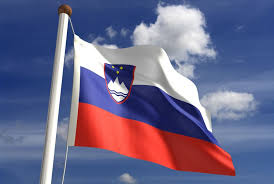Slovakia is a Central European nation with a rich cultural history and stunning natural surroundings. However, linguistic limitations may be a major problem for both natives and visitors, as they are in any nation with a varied population. Communication relies heavily on language, and when individuals can’t understand one another, it can result in misunderstandings, irritation, and even confrontation. The linguistic issues and language learning in Slovakia will be discussed in this article.

Language barriers
The official language of Slovakia, which has a population of nearly 5 million, is Slovak. Hungarians, Roma, and Ukrainians, who speak their languages, also make up sizable communities. This indicates that linguistic problems are a common occurrence for many residents. For instance, it could be difficult for two people who speak Slovakian and Hungarian to understand one another. People may find it challenging to access opportunities and services like work, healthcare, and education as a result.
Overcoming linguistic barriers
It might be difficult to communicate with locals if you don’t understand their language. The following practical strategies can be used to get beyond this linguistic barrier.
Learning the basics
It is advised to start by learning some fundamental Slovak words and phrases. Not only will this facilitate communication with the locals, but it will also demonstrate respect for their language and way of life. You can learn typical words for introducing yourself, getting directions, and placing an order for meals. There are several internet tools for learning languages, in addition to language institutions that provide courses particularly designed for travelers.
Language exchange programs
Language exchange programs are one technique to overcome the linguistic barrier. These programs provide students the chance to learn about various cultures and viewpoints while also giving them the chance to practice their linguistic abilities with native speakers. Both online and in major cities, there are a variety of linguistic exchange programs, events, and organizations.
Technology
Technology is another means of overcoming linguistic difficulties. Both residents and visitors can benefit from language study and translation tools. With the use of these applications, text and speech may be translated in real-time, facilitating communication with others who speak various languages. It’s crucial to remember that technology cannot replace interpersonal interaction and cross-cultural interchange, though.
Language learning in Slovakia
The difficulty of Slovakian is one of the biggest obstacles to learning it. Slovakian features a seven-case, complicated grammar system in addition to a large number of irregular verbs and noun declensions. Learning the language can be challenging due to its complexity, especially for those who are not conversant in other Slavic languages.
Nevertheless, Slovakia offers a variety of chances for linguistic study despite its difficulties. There are several Slovakian linguistic schools and language programs, as well as a wealth of online learning materials. Below are a few of these resources.
Language Schools
Several schools in the country provide education in a variety of languages. Both group and personalized training are routinely offered by these schools, and some even provide virtual classes. Some of the most well-known linguistic institutions here are the International House Bratislava, the Slovak Language School, and the Centre for Continuing Education at Comenius University.
Language exchange programs
Another great way to learn a new language in Slovakia is through linguistic exchange initiatives. Through such courses, you may converse with native speakers you’re trying to learn and, in exchange, instruct them on how to speak your native tongue. Two of the most well-known exchange initiatives in Slovakia are the Bratislava Language Exchange and the Language Exchange in Slovakia.
Online resources
If you want to go at your own pace, there are many online resources accessible to help you learn a new tongue in Slovakia. Among the popular options are Rosetta Stone, Babbel, and Duolingo. These initiatives provide classes and interesting activities to help you improve your linguistic skills.
Benefits of learning Slovakian
Learning Slovakian has a lot of advantages. Knowing Slovakian can make it simpler to take advantage of opportunities and services there and to interact with people. Additionally, it may make it possible to go to and work in other nations in the area, including the Czech Republic, Poland, and Ukraine. Learning Slovakian is a fantastic opportunity to become fully immersed in Slovakian culture and to learn more about its customs and history.
Multilingualism in Slovakia
Many individuals in Slovakia speak two or more languages, continuing a long heritage of multilingualism. This implies that speaking different languages in conversation is usual, and multilingual signage and marketing are also prevalent. The variety of the nation is reflected in this multilingualism, which also provides chances for language acquisition and cross-cultural interaction.
You may also find these articles helpful
Moving to Slovakia: Full relocation guide
Best cities to live in Slovakia


